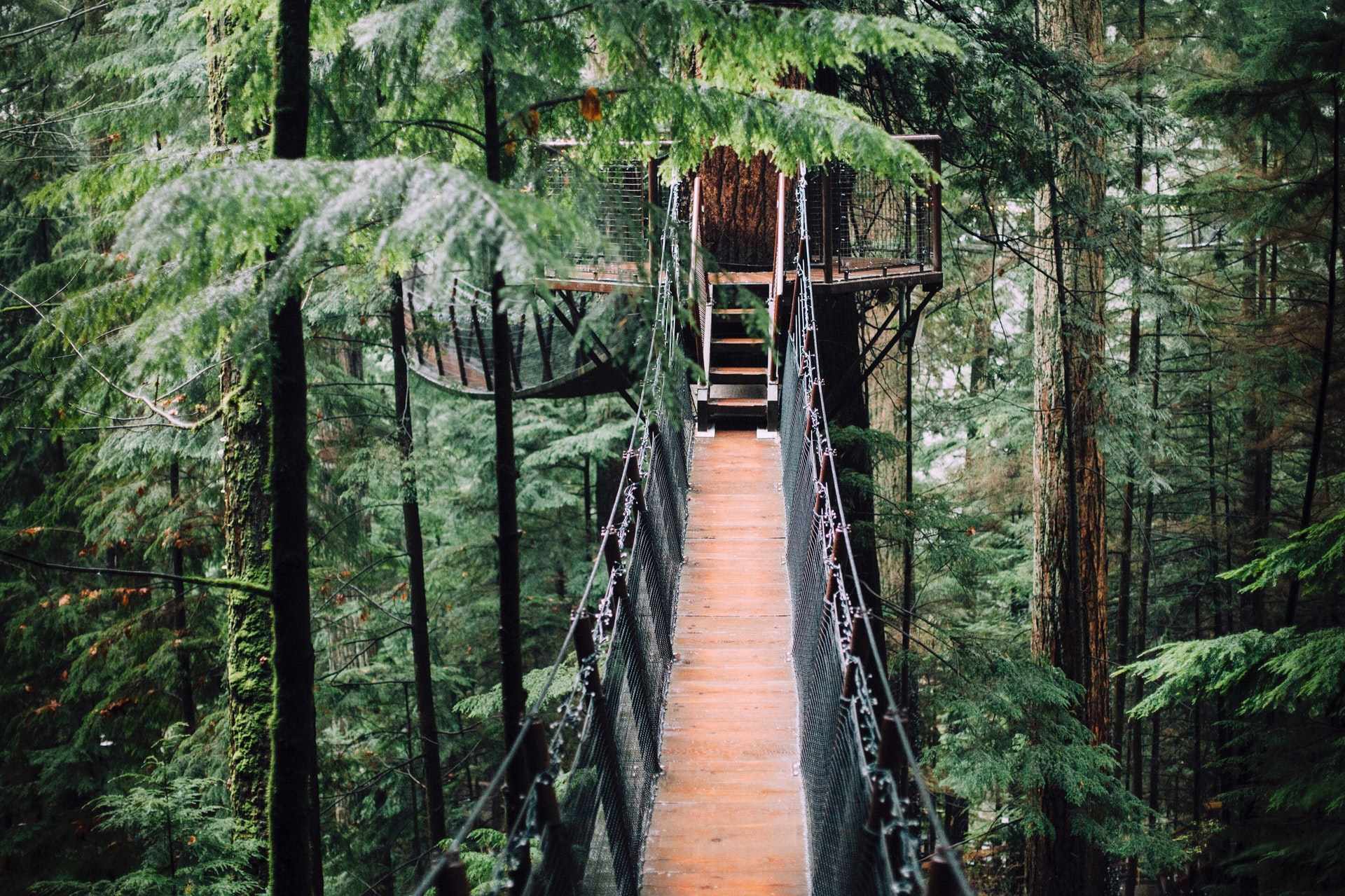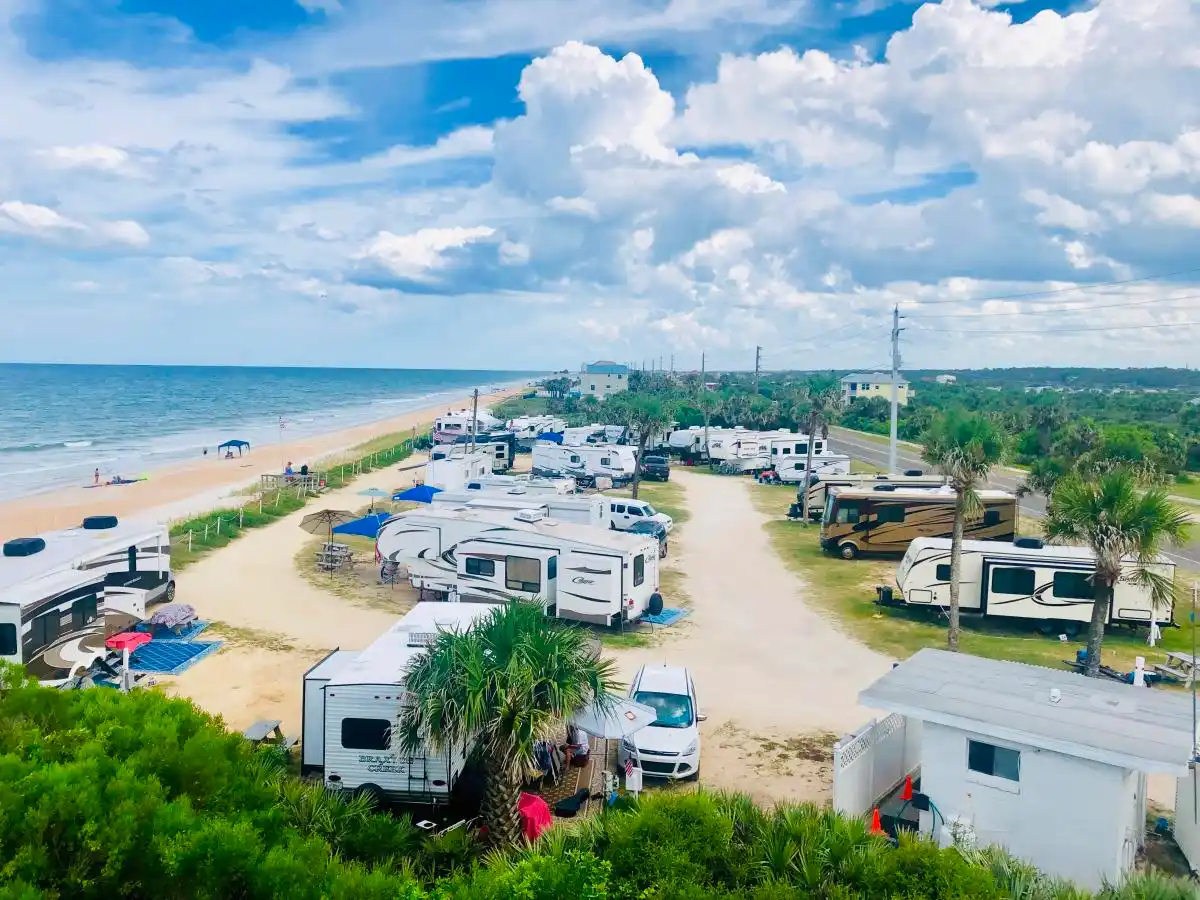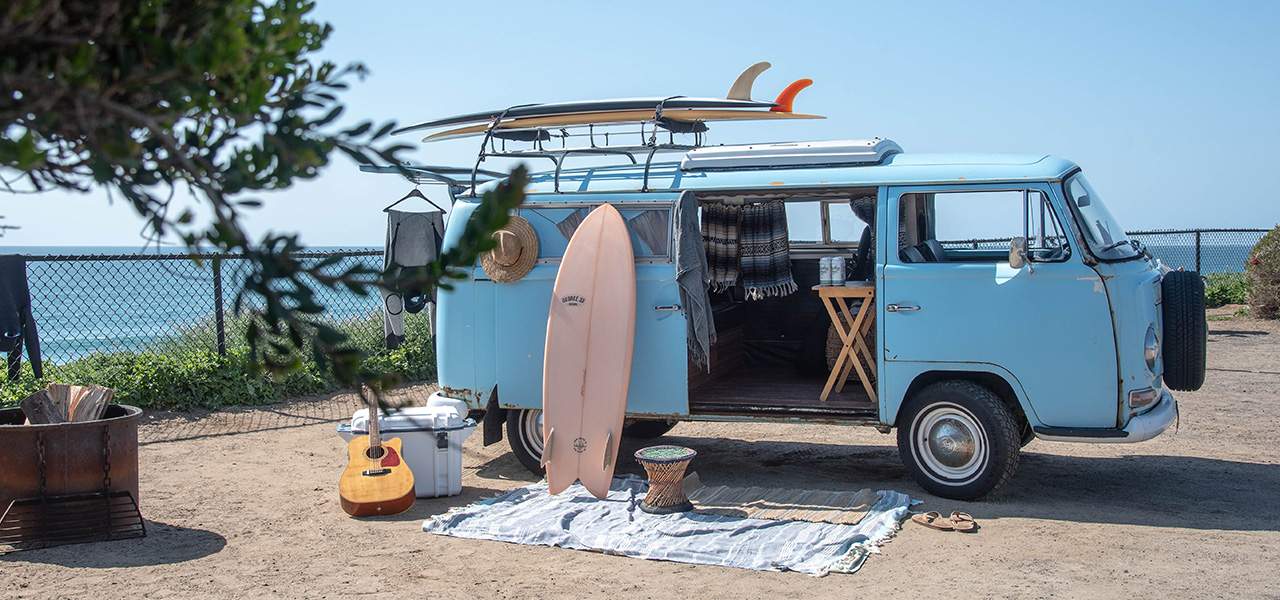Stay-at-home orders are sweeping through the U.S. faster than a bison stampede. Non-essential businesses are temporarily closing nationwide. State park campgrounds are getting shuttered until the public’s health is less at risk.
But what if you live full-time in your RV?
What if your only way to social distance yourself is on the road?
What if your home depends on campgrounds staying open?
When your home is on wheels, you still need a place to park it, but RV parks have been no exception to the coronavirus shutdown. At the time of this writing, numerous states have either closed or delayed opening their state park campgrounds, and nearly 25% of private parks are closed nationwide.
These RV park closures have booted many full-time RVers out of their homes. If you’re a full-timer impacted by RV park closings, what should you do?
This article will help you navigate the coronavirus situation to help you find a home where you can practice safe social distancing and respect COVID-19 health protocols.
Be sure you have all the facts
Amidst the coronavirus chaos, be sure to gather factual information before deciding where to ride out this storm. For example, if you’re thinking about practicing safe social distancing in a national park campground, you may want to reconsider. While some national parks remain open to RVs, many are closed. Our blog post, Which national park Campgrounds are Closed Due to Coronavirus? will allow you to check the current operational status of any national park’s campgrounds, but as the coronavirus progresses, more national parks are closing, so it’s best to call the park ahead before you plan on arriving.
If you’re a Thousand Trails, Coast to Coast, or other camping network member, you’re likely in good shape. Private campgrounds and camping networks have generally remained open but have closed gathering facilities and events during the COVID-19 pandemic.
The bottom line is that in uncertain times, it is best to gather as much factual information as you can before making a decision. If you only stick to what your social media friends are saying, you’ll likely come to believe that all campgrounds will soon close. Thankfully, many campgrounds seem to understand that they are a home for people. These campgrounds have stayed open while taking extra precautions to support social distancing.
Focus on long-term stays in your RV
Difficult as it may be for a full-time RVer, now is not the time to go adventuring around the country. The most effective way for a full-timer to practice social distancing is to find one RV park or campground where you can shelter in place. Many RV parks even offer significant discounts if you camp for a month or more.
As long as you practice safe social distancing, you can still break out to run on trails, go for a bike ride, or explore many other natural wonders. Remember, too, that this is just a temporary pause. While no one knows when the adventure will begin again, sheltering in place is a short-term measure to keep you and your family safe on your full-time road trip.
Always have a backup plan
Uncertain times can change your camping plans on a dime. That’s why full-time RVers always need a backup plan for where to camp in case a campground closes. Here are some tips for your backup plan:
- Call friends and family with land or driveways — If you have friends and family who have land or a driveway with enough space for your rig, you should reach out to them now. Make arrangements to camp at their place if you find yourself in an emergency situation.
- Be prepared to boondock — The ability to boondock, or camp without hookups, will open an array of new spaces for you to ride out this storm. Check out these guides from Outdoorsy for some killer tips on boondocking.
- Use Campendium’s search tool to research other open campgrounds.
What to do if your RV park closes
First, don’t panic. If your RV park closes due to the coronavirus, you will usually have 24-48 hours to make arrangements before you need to leave. You can and will find a new place to camp where you can still practice safe social distancing.
Next, jump back to this guide from Campendium to find your next home. Campendium is currently providing daily updates on the U.S. campgrounds that remain open. If all else fails, it might be time to resort to other backup plans and camp with friends or family or boondock in a safe spot.
Conclusion
The coronavirus has altered life for us all. Full-time RVers are additionally impacted by the fact that the places they call home — RV parks and campgrounds — are closing at a growing clip. While this is disheartening, many campgrounds are fighting to keep their doors open so they can provide shelter during this tough time. Following the steps above will help you and your family stay safe on your full-time RV journey.
Are you a full-time RVer? The Escapees RV Club has created a nationwide call-to-action for full-timers fighting for their homes. Click here to join our fight to keep RV parks open.
Team Outdoorsy is here to help you along your journey. If you have questions or concerns about your upcoming RV rental, give us a call at 1-877-723-7232, send us an email, or start a chat. And for a continuously updated list of frequently asked COVID-19 questions relating to RV travel, visit our FAQ page.








